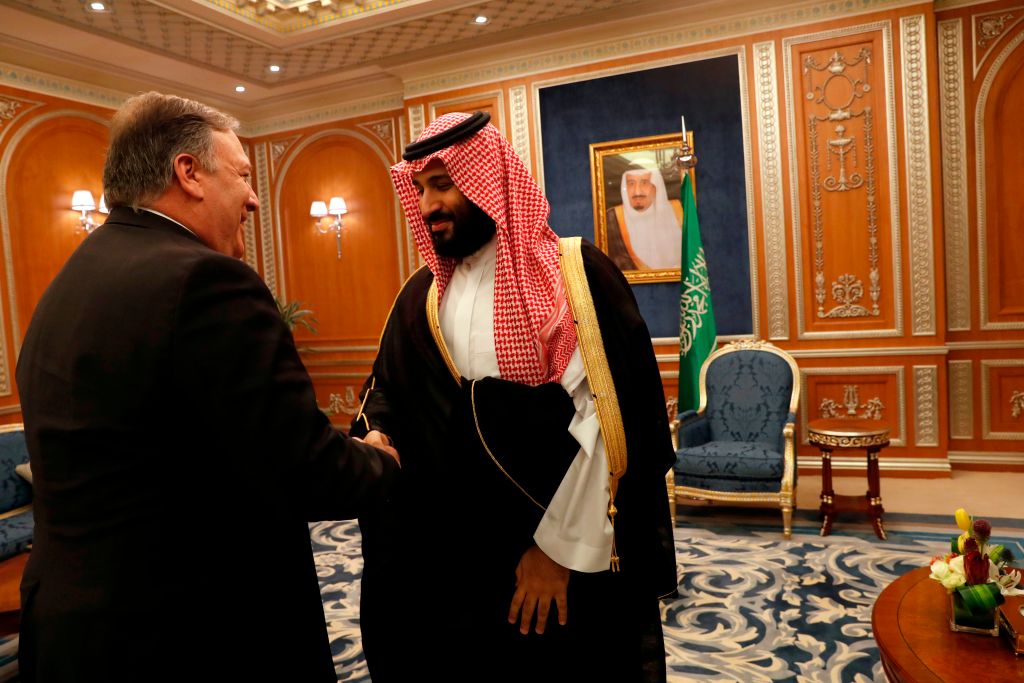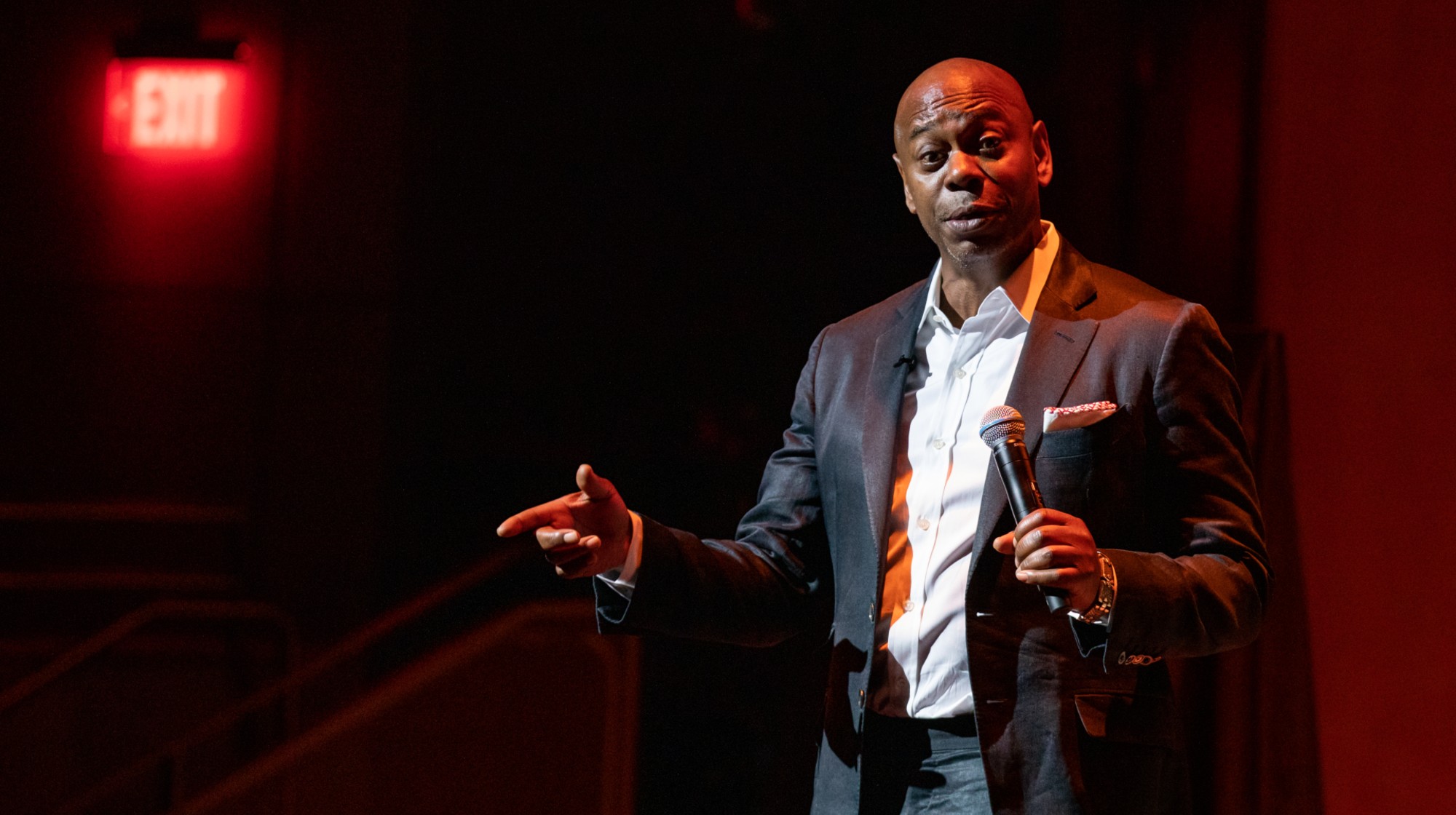U.S. intelligence is reportedly convinced Saudi crown prince ordered Khashoggi hit, but they can't inform Congress


A free daily email with the biggest news stories of the day – and the best features from TheWeek.com
You are now subscribed
Your newsletter sign-up was successful
There's a growing consensus in Washington and Europe that Saudi Arabia, specifically Crown Prince Mohammed bin Salman, is culpable in the Oct. 2 disappearance and likely murder of U.S.-based Saudi journalist Jamal Khashoggi. And the latest group signaling its conviction of the crown prince's guilt is the U.S. intelligence community, The New York Times reports. This assessment, based so far on growing circumstantial evidence, poses a challenge for President Trump and some of his key advisers, who have urged patience and highlighted Saudi Arabia's denials and the kingdom's economic and strategic importance.
Trump can ignore or disagree with the U.S. intelligence assessment, the Times says, but so far he's keeping Congress out of the loop. The Trump administration has "clamped down" on sharing intelligence about the Khashoggi case and canceled a classified briefing scheduled for Tuesday, Senate Foreign Relations Chairman Bob Corker (R-Tenn.) said Wednesday. "I suppose they don't want us to see the intel," he said, and "I can only surmise that probably the intel is not painting a pretty picture as it relates to Saudi Arabia." Based on previous intelligence he reviewed, Corker added, "everything points not to just Saudi Arabia, but to MBS," as bin Salman is commonly called.
Other senators from both parties have also called for a stronger response to Saudi Arabia's apparently brutal murder inside its Istanbul consulate, and they can act without the White House, voting for sanctions with a veto-proof majority. But Trump is reportedly holding out for what The Washington Post calls a "mutually agreeable explanation" from the Saudis, one that avoids implicating MBS. "The president is trying to introduce a little calm into this, to wait and see who's directly responsible," Trump lawyer Rudy Giuliani explained to the Post. "While he makes clear he doesn't approve of what has happened, it's complicated because this isn't a pure enemy he's dealing with, like if Iran did it."
The Week
Escape your echo chamber. Get the facts behind the news, plus analysis from multiple perspectives.

Sign up for The Week's Free Newsletters
From our morning news briefing to a weekly Good News Newsletter, get the best of The Week delivered directly to your inbox.
From our morning news briefing to a weekly Good News Newsletter, get the best of The Week delivered directly to your inbox.
A free daily email with the biggest news stories of the day – and the best features from TheWeek.com
Peter has worked as a news and culture writer and editor at The Week since the site's launch in 2008. He covers politics, world affairs, religion and cultural currents. His journalism career began as a copy editor at a financial newswire and has included editorial positions at The New York Times Magazine, Facts on File, and Oregon State University.
-
 The Olympic timekeepers keeping the Games on track
The Olympic timekeepers keeping the Games on trackUnder the Radar Swiss watchmaking giant Omega has been at the finish line of every Olympic Games for nearly 100 years
-
 Will increasing tensions with Iran boil over into war?
Will increasing tensions with Iran boil over into war?Today’s Big Question President Donald Trump has recently been threatening the country
-
 Corruption: The spy sheikh and the president
Corruption: The spy sheikh and the presidentFeature Trump is at the center of another scandal
-
 ‘One Battle After Another’ wins Critics Choice honors
‘One Battle After Another’ wins Critics Choice honorsSpeed Read Paul Thomas Anderson’s latest film, which stars Leonardo DiCaprio, won best picture at the 31st Critics Choice Awards
-
 A peek inside Europe’s luxury new sleeper bus
A peek inside Europe’s luxury new sleeper busThe Week Recommends Overnight service with stops across Switzerland and the Netherlands promises a comfortable no-fly adventure
-
 Son arrested over killing of Rob and Michele Reiner
Son arrested over killing of Rob and Michele ReinerSpeed Read Nick, the 32-year-old son of Hollywood director Rob Reiner, has been booked for the murder of his parents
-
 Rob Reiner, wife dead in ‘apparent homicide’
Rob Reiner, wife dead in ‘apparent homicide’speed read The Reiners, found in their Los Angeles home, ‘had injuries consistent with being stabbed’
-
 Hungary’s Krasznahorkai wins Nobel for literature
Hungary’s Krasznahorkai wins Nobel for literatureSpeed Read László Krasznahorkai is the author of acclaimed novels like ‘The Melancholy of Resistance’ and ‘Satantango’
-
 Saudi comedy fest exposes free speech schism in stand-up
Saudi comedy fest exposes free speech schism in stand-upIN THE SPOTLIGHT The decision by some of stand-up’s biggest names to attend a festival in a nation infamous for its censorship has the comedy world picking sides and settling old scores
-
 Primatologist Jane Goodall dies at 91
Primatologist Jane Goodall dies at 91Speed Read She rose to fame following her groundbreaking field research with chimpanzees
-
 Florida erases rainbow crosswalk at Pulse nightclub
Florida erases rainbow crosswalk at Pulse nightclubSpeed Read The colorful crosswalk was outside the former LGBTQ nightclub where 49 people were killed in a 2016 shooting
